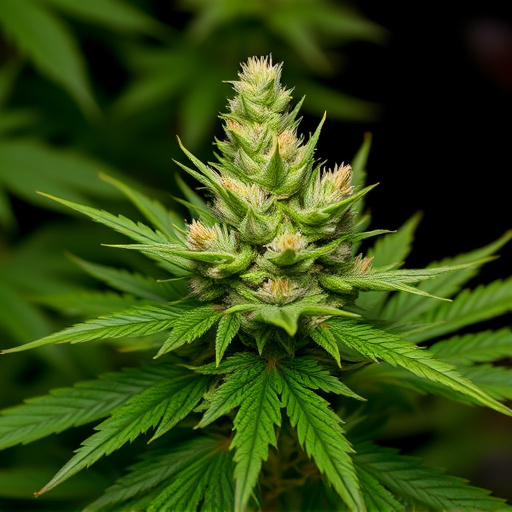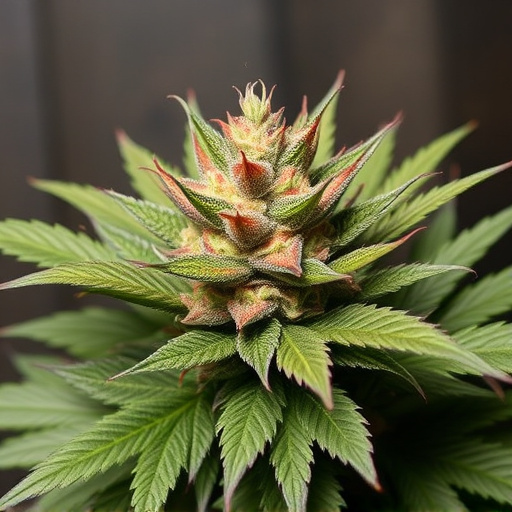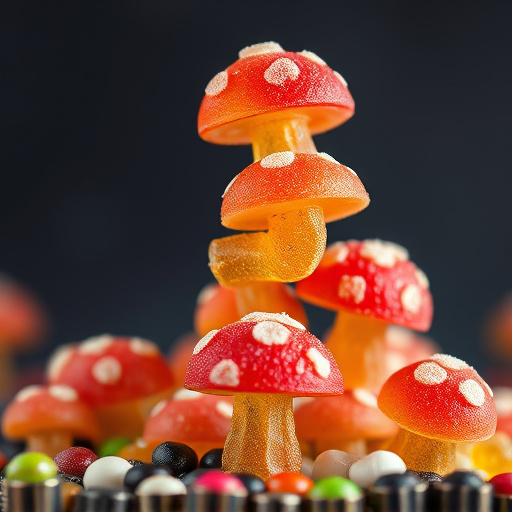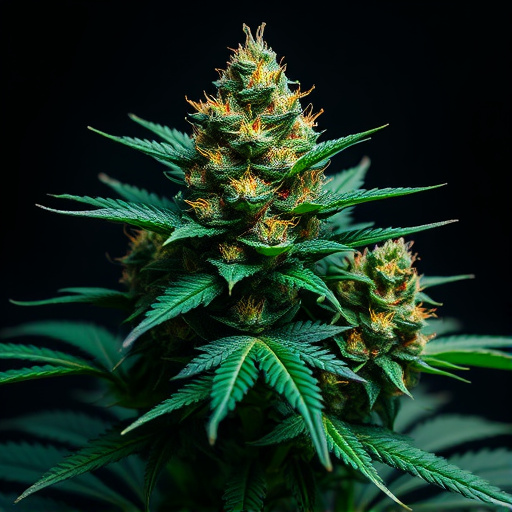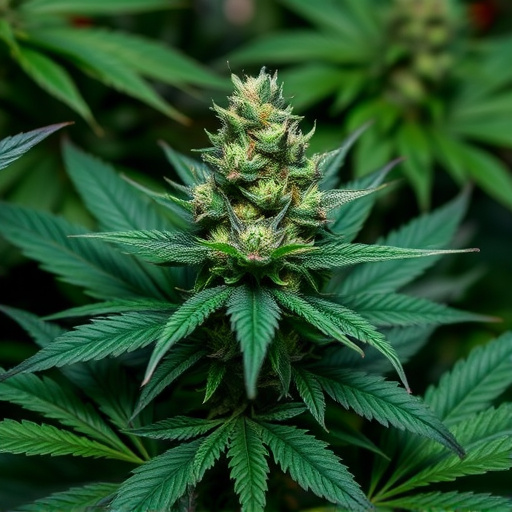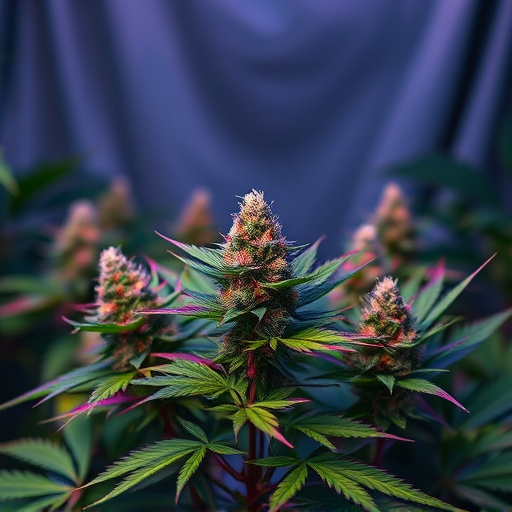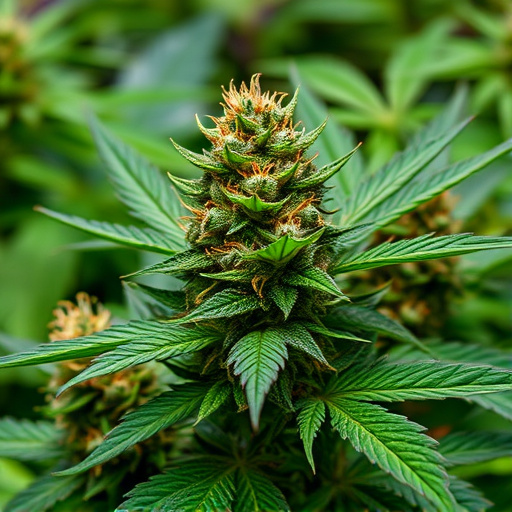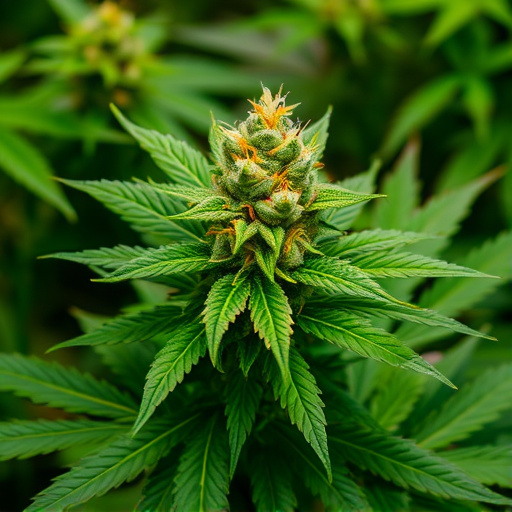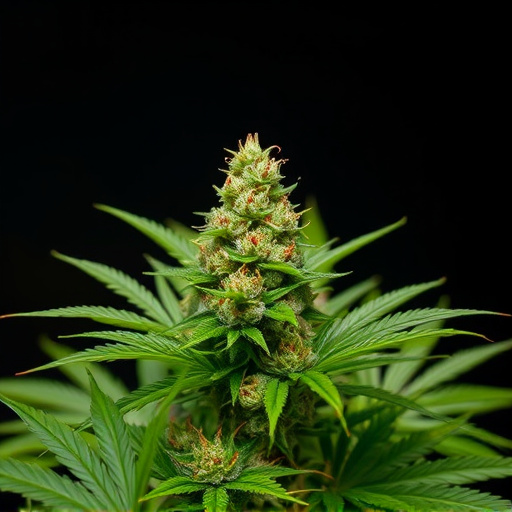High THC cannabis strains are often sought for their intense effects, but strength is a multifaceted issue. Terpenes, CBD, and dietary intake influence flavor, benefits, and overall experience. Simply focusing on THC percentage overlooks the complex interplay of cannabinoids and nutrients that truly define "high THC" strains. Nutritious diets can enhance THC absorption and optimize the effects of these strains, offering cultivators and consumers new ways to tailor their cannabis experiences.
Curious about whether certain foods can make weed stronger? This article explores the fascinating connection between nutrition and cannabis potency, specifically focusing on high THC strains. We’ll delve into how understanding THC’s role in cannabis strains and its interaction with diet can potentially enhance your experience. By examining the impact of food on cannabinoid absorption, you’ll gain insights that may revolutionize your approach to consuming high THC cannabis.
- Understanding THC and Its Role in Cannabis Strains
- The Impact of Diet on Cannabinoid Absorption
- Exploring the Potential Enhancement of High THC Strains through Nutrition
Understanding THC and Its Role in Cannabis Strains
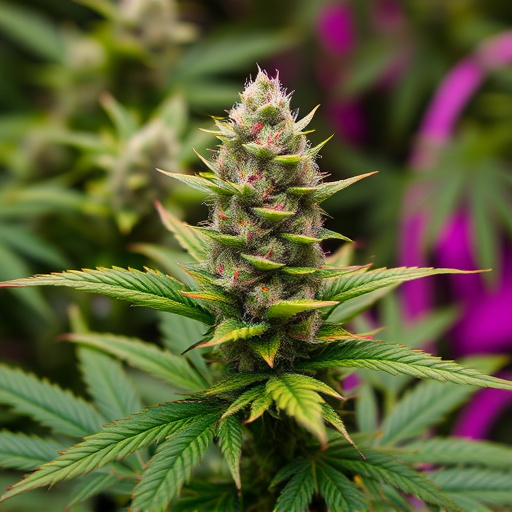
Cannabis users often seek out so-called “high THC cannabis strains” for their potent effects, but it’s important to understand that THC (tetrahydrocannabinol) is just one component among many in the complex makeup of this plant. THC is the primary psychoactive compound responsible for the “high” feeling associated with cannabis use. It interacts with our bodies’ endocannabinoid system, which plays a role in regulating mood, memory, and pain perception.
While high THC levels can indeed intensify the intoxicating effects, the strength of a cannabis strain isn’t solely determined by its THC content. Other factors like terpene profiles (aromatic compounds that also influence flavor and potential therapeutic benefits) and the presence of other cannabinoids, such as CBD (cannabidiol), all contribute to the overall experience and potency. Thus, simply focusing on high THC levels doesn’t guarantee a stronger or more desirable cannabis experience; it’s the intricate interplay of these various components that truly matters.
The Impact of Diet on Cannabinoid Absorption

The human body’s ability to absorb and process cannabinoids, such as THC found in high THC cannabis strains, is significantly influenced by diet. Nutritional factors play a crucial role in how effectively the body utilizes the active compounds in marijuana. Certain foods can enhance the bioavailability of these compounds, leading to more potent effects when consuming cannabis.
For instance, fats are known to aid in the absorption of water-soluble substances, and cannabinoids are no exception. Incorporating healthy fats like omega-3 fatty acids into your diet can improve the body’s ability to absorb THC. Additionally, some studies suggest that specific vitamins and minerals, such as vitamin C and magnesium, may enhance cannabinoid receptor activity, potentially intensifying the effects of high THC cannabis strains. Understanding these dietary influences is essential for those looking to optimize their cannabis experience.
Exploring the Potential Enhancement of High THC Strains through Nutrition
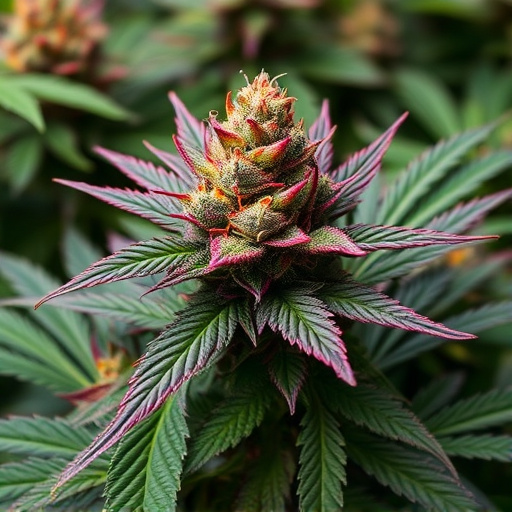
In the realm of cannabis, the quest for enhancing its potency has sparked curiosity among enthusiasts and researchers alike. One intriguing aspect often discussed is the potential impact of nutrition on the strength of high THC cannabis strains. While cannabis’s effects are largely influenced by genetics and cultivation methods, some believe that dietary choices could play a subtle role in amplifying certain compounds, particularly tetrahydrocannabinol (THC), the primary psychoactive component known for its robust effects.
Nutrition can indirectly influence the plant’s chemistry during growth, potentially leading to variations in cannabinoid profiles. Studies suggest that specific nutrients and herbs may support cannabis plants’ overall health, allowing them to produce more robust high THC strains. For instance, certain micronutrients like magnesium and zinc are essential for optimal plant development, and their adequate supply could contribute to a healthier, more potent final product. Exploring these nutritional connections opens up exciting possibilities for cannabis cultivators and consumers alike, offering a unique way to customize and optimize the effects of high THC strains.
While certain foods won’t directly make your high from weed stronger, what you eat can influence how your body absorbs cannabinoids, like THC. Understanding this relationship can help users maximize their experience with high THC cannabis strains. Incorporating nutrient-dense foods that enhance absorption could potentially intensify the effects, but it’s essential to remember that individual responses vary.
